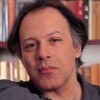HERMIONE: Since what I am to say must be but that
Which contradicts my accusation, and
The testimony on my part no other
But what comes from myself, it shall scarce boot me
To say “Not guilty.” Mine integrity,
Being counted falsehood, shall, as I express it,
Be so received. But thus: if powers divine
Behold our human actions, as they do,
I doubt not then but innocence shall make
False accusation blush and tyranny
Tremble at patience.William Shakespeare (1564-1616) English dramatist and poet
Winter’s Tale, Act 3, sc. 2, l. 23ff (3.2.23-33) (1611)
(Source)
Quotations about:
credibility
Note not all quotations have been tagged, so Search may find additional quotes on this topic.
When asked what people gain by telling likes, he replied, “That when they tell the truth they are not believed.”
[ἐρωτηθεὶς τί περιγίνεται κέρδος τοῖς ψευδομένοις, “ὅταν,” ἔφη, “λέγωσιν ἀληθῆ, μὴ πιστεύεσθαι.”]
Aristotle (384-322 BC) Greek philosopher
Attributed in Diogenes Laërtius, Lives and Opinions of Eminent Philosophers, Book 5. [tr. Mensch (2018)]
(Source)
Original Greek. Alternate translations:
He was once asked, what those who tell lies gain by it; “They gain this,” said he, “that when they speak truth they are not believed.”
[tr. Yonge (1853), sec. 11]
To the question, "What do people gain by telling lies?" his answer was, "Just this, that when they speak the truth they are not believed."
[tr. Hicks (1925), sec. 17]
Read the bible then, as you would read Livy or Tacitus. The facts which are within the ordinary course of nature you will believe on the authority of the writer, as you do those of the same kind in Livy and Tacitus. The testimony of the writer weighs in their favor in one scale, and their not being against the laws of nature does not weigh against them. But those facts in the bible which contradict the laws of nature, must be examined with more care, and under a variety of faces. Here you must recur to the pretensions of the writer to inspiration from god. Examine upon what evidence his pretensions are founded, and whether that evidence is so strong as that it’s falshood would be more improbable than a change of the laws of nature in the case he relates For example in the book of Joshua we are told the sun stood still several hours. Were we to read that fact in Livy or Tacitus we should class it with their showers of blood, speaking of statues, beasts &c., but it is said that the writer of that book was inspired. Examine therefore candidly what evidence there is of his having been inspired. The pretension is entitled to your enquiry, because millions believe it. On the other hand you are Astronomer enough to know how contrary it is to the law of nature that a body revolving on it’s axis, as the earth does, should have stopped, should not by that sudden stoppage have prostrated animals, trees, buildings, and should after a certain time have resumed it’s revolution, and that without a second general prostration. Is this arrest of the earth’s motion, or the evidence which affirms it, most within the law of probabilities?
Thomas Jefferson (1743-1826) American political philosopher, polymath, statesman, US President (1801-09)
Letter to Peter Carr (10 Aug 1787)
(Source)






